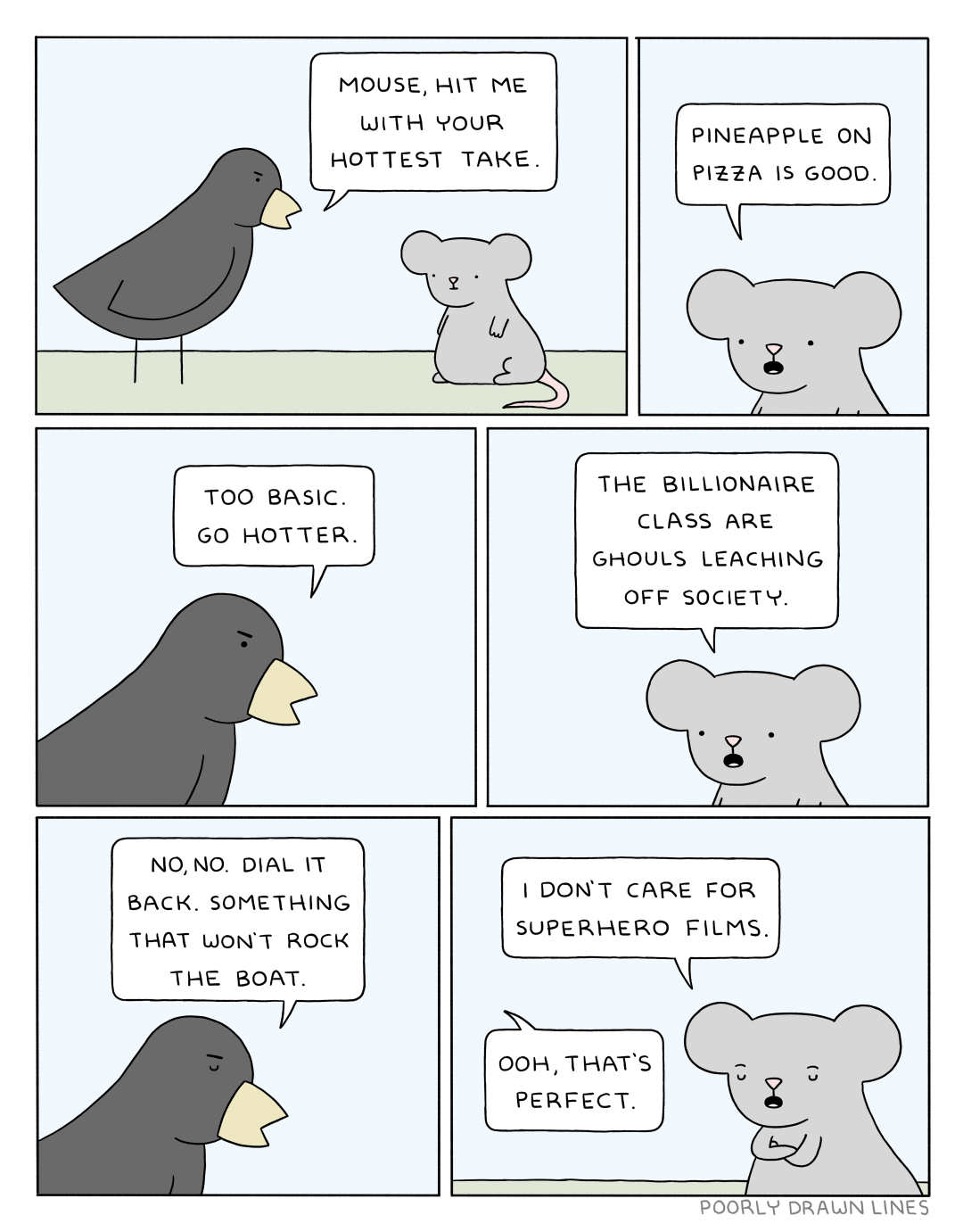We can have a different web
🔗 a linked post to
citationneeded.news »
—
originally shared here on
Okay, I guess this blog is just turning into a bunch of links about why the internet sucks these days.
But I should stop framing these links as a “here’s why what we have right now sucks” because truthfully… it doesn’t.
Or rather, it doesn’t have to.
I really enjoyed Molly White’s metaphor about gardens1. I’ve been tending to my own garden on this site for more than a decade, and I’ve kept up patches of turf on the web since the mid 90s.
I just like being here. I like having a place where friends and other folks can see what I’m all about and choose to interact with me or not.
A part of this article that stuck out to me was Molly’s observation that the internet started becoming less fun when we all came here to work. I couldn’t agree more.2
Somewhat related here: this past weekend, I decided to finally do something about my IRL piece of land. You see, most of my backyard is now just dirt. My front yard is patches of grass but primarily dominated by weeds.
My back patio is in literal shambles, chunks of broken patio paver strewn around the yard.
The screens on my windows are either broken, bent, or missing altogether.
The cool Govee lights no longer stick to my overhang, so they dangle like a complete eyesore.
It’s frustrating.
This past weekend, I went to the hardware store and spent way too much money on grass seed. It felt incredibly rewarding to do the hard work of ripping up the old junk and trying to build something new.
It felt like a sign for me to log off a bit more often and tend to reality.
But that’s not to say this garden is going away anytime soon. I’ll keep sharing articles like these here because I think it fits nicely with the thesis under which I am about to launch a newsletter: technology is so cool, and we could all use a reminder of that sometimes.
We also could use a friend to help us figure out how to use it right.
Much like I could use a friend to help me figure out how to replace my busted up patio.
-
As an avid anecdotalist, I’m bummed I haven’t been using this metaphor the whole time. I mean, we even use the term “walled garden” to refer to massive platforms like Facebook or TikTok. Get your head in the game, Tim! ↩
-
And as someone who nearly swore off programming altogether during my senior year of high school because building Simpsons websites wasn’t as much fun anymore, I find myself once again disappointed that I didn’t see this one coming. 0-for-2, Tim, you’re slipping! ↩
